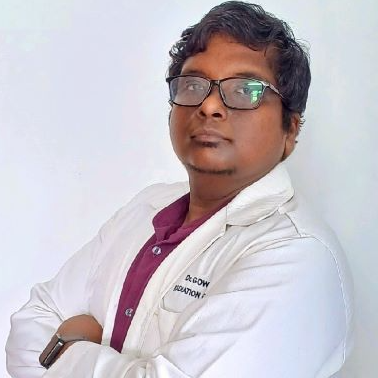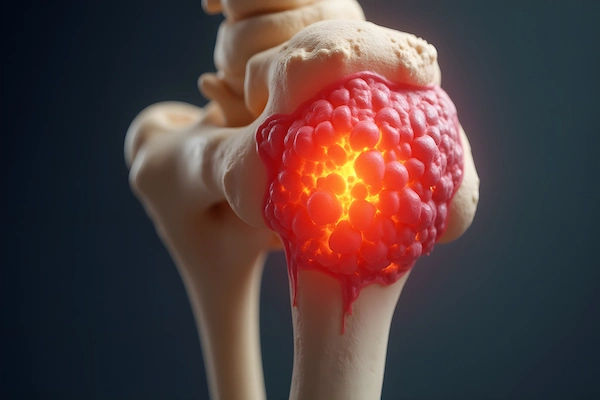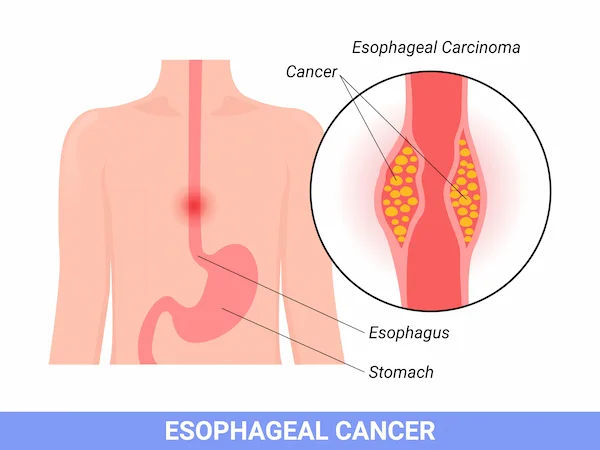Hodgkin Lymphoma Overview and Treatment Options
Know about Hodgkin lymphoma, causes, risk factors, symptoms, diagnosis, management of side effects, and treatment options. Learn ab


Introduction
Hodgkin Lymphoma (HL) is a type of cancer that affects the lymphatic system, which is part of the body’s immune system. While a cancer diagnosis can be overwhelming, it’s important to know that Hodgkin Lymphoma is one of the most treatable cancers, especially when detected early. This article will help you understand what Hodgkin Lymphoma is, its symptoms, causes, and the available treatment options.
What is Hodgkin Lymphoma?
Hodgkin Lymphoma is a cancer that starts in white blood cells called lymphocytes. These cells help the body fight infections. In HL, abnormal lymphocytes (called Reed-Sternberg cells) grow uncontrollably, leading to swollen lymph nodes and other symptoms.
There are two main types of Hodgkin Lymphoma:
1. Classical Hodgkin Lymphoma (cHL) – The most common type, making up about 95% of cases.
2. Nodular Lymphocyte-Predominant Hodgkin Lymphoma (NLPHL) – A rare and slower-growing form.
Consult an Oncologist for Personalised Advice
Symptoms of Hodgkin Lymphoma
The most common symptom is a painless swelling in the lymph nodes, usually in the neck, armpits, or groin.
Other symptoms may include:
• Persistent fatigue
• Unexplained fever
• Night sweats
• Unexplained weight loss
• Itchy skin
• Loss of appetite
• Cough or trouble breathing (if lymph nodes in the chest are affected)
If you notice any of these symptoms persisting for weeks, it’s important to see a doctor for further evaluation.
Causes and Risk Factors
The exact cause of Hodgkin Lymphoma is unknown, but certain factors may increase the risk:
• Age – Most common in young adults (15-35) and older adults (over 55).
• Gender – Slightly more common in males.
• Family History – Having a sibling with HL may slightly increase risk.
• Epstein-Barr Virus (EBV) – Past infection with EBV (which causes mononucleosis) is linked to some cases.
• Weakened Immune System – People with HIV/AIDS or those taking immunosuppressant drugs have a higher risk.
Diagnosis of Hodgkin Lymphoma
If Hodgkin Lymphoma is suspected, your doctor may recommend:
1. Physical Exam – Checking for swollen lymph nodes.
2. Blood Tests – To assess overall health and detect abnormalities.
3. Imaging Tests – Such as X-rays, CT scans, or PET scans to locate affected lymph nodes.
4. Biopsy – Removing a small piece of lymph node tissue to check for cancer cells.
Get Your Health Assessed
Early and accurate diagnosis is crucial for effective treatment.
Treatment Options for Hodgkin Lymphoma
Hodgkin Lymphoma is highly treatable, with many patients achieving long-term remission. Treatment depends on the stage of cancer, overall health, and other factors. Common options include:
1. Chemotherapy
• Uses powerful drugs to kill cancer cells.
• Often given in cycles, with rest periods in between.
• Common regimens include ABVD (Adriamycin, Bleomycin, Vinblastine, Dacarbazine) or BEACOPP.
2. Radiation Therapy
• Uses high-energy beams to target and destroy cancer cells.
• Often used after chemotherapy for early-stage HL.
3. Immunotherapy
• Helps the immune system recognise and attack cancer cells.
• Drugs like Pembrolizumab (Keytruda) or Nivolumab (Opdivo) may be used in relapsed cases.
4. Stem Cell Transplant
• Recommended if cancer returns after treatment.
• Involves replacing diseased bone marrow with healthy stem cells.
5. Targeted Therapy
• Uses drugs that specifically attack cancer cells without harming normal cells.
• Brentuximab vedotin (Adcetris) is an example used for HL.
Your doctor will create a personalised treatment plan based on your specific condition.
Managing Side Effects of Treatment
Cancer treatments can cause side effects, but many can be managed with proper care:
• Fatigue – Rest when needed and engage in light exercise.
• Nausea – Anti-nausea medications and small, frequent meals can help.
• Hair Loss – Temporary; hair usually grows back after treatment.
• Infections – Maintain hygiene and avoid crowded places if immunity is low.
Lifestyle and Dietary Tips
A healthy lifestyle can support recovery and overall well-being:
• Eat a Balanced Diet – Focus on fruits, vegetables, lean proteins, and whole grains.
• Stay Hydrated – Drink plenty of water to help flush out toxins.
• Exercise Moderately – Gentle activities like walking or yoga can boost energy.
• Manage Stress – Meditation, counselling, or support groups can help emotionally.
When to Seek Help
If you or a loved one experiences persistent symptoms like swollen lymph nodes, unexplained weight loss, or extreme fatigue, consult a doctor. Early diagnosis improves treatment success.
Final Thoughts
A Hodgkin Lymphoma diagnosis can be scary, but advancements in treatment offer hope. With timely medical care, many patients recover fully and lead healthy lives. Stay informed, follow your doctor’s advice, and take care of your overall well-being.
Consult an Oncologist for Personalised Advice
Consult an Oncologist for Personalised Advice

Dr. Sanchayan Mandal
Medical Oncologist
17 Years • MBBS, DNB Raditherapy, DrNB Medical Oncology
East Midnapore
VIVEKANANDA SEBA SADAN, East Midnapore

Dr. Sanchayan Mandal
Medical Oncologist
17 Years • MBBS, DrNB( MEDICAL ONCOLOGY), DNB (RADIOTHERAPY),ECMO. PDCR. ASCO
Kolkata
MCR SUPER SPECIALITY POLY CLINIC & PATHOLOGY, Kolkata

Dr.sanchayan Mandal
Medical Oncologist
17 Years • MBBS, DrNB( MEDICAL ONCOLOGY), DNB (RADIOTHERAPY),ECMO. PDCR. ASCO
Kolkata
Dr. Sanchayan Mandal Oncology Clinic, Kolkata

Dr Gowshikk Rajkumar
Oncologist
10 Years • MBBS, DMRT, DNB in Radiation oncology
Bengaluru
Apollo Clinic, JP nagar, Bengaluru

Dr. Gopal Kumar
Head, Neck and Thyroid Cancer Surgeon
15 Years • MBBS, MS , FARHNS ( Seoul, South Korea ), FGOLF ( MSKCC, New York )
Delhi
Apollo Hospitals Indraprastha, Delhi
(25+ Patients)
Consult an Oncologist for Personalised Advice

Dr. Sanchayan Mandal
Medical Oncologist
17 Years • MBBS, DNB Raditherapy, DrNB Medical Oncology
East Midnapore
VIVEKANANDA SEBA SADAN, East Midnapore

Dr. Sanchayan Mandal
Medical Oncologist
17 Years • MBBS, DrNB( MEDICAL ONCOLOGY), DNB (RADIOTHERAPY),ECMO. PDCR. ASCO
Kolkata
MCR SUPER SPECIALITY POLY CLINIC & PATHOLOGY, Kolkata

Dr.sanchayan Mandal
Medical Oncologist
17 Years • MBBS, DrNB( MEDICAL ONCOLOGY), DNB (RADIOTHERAPY),ECMO. PDCR. ASCO
Kolkata
Dr. Sanchayan Mandal Oncology Clinic, Kolkata

Dr Gowshikk Rajkumar
Oncologist
10 Years • MBBS, DMRT, DNB in Radiation oncology
Bengaluru
Apollo Clinic, JP nagar, Bengaluru

Dr. Gopal Kumar
Head, Neck and Thyroid Cancer Surgeon
15 Years • MBBS, MS , FARHNS ( Seoul, South Korea ), FGOLF ( MSKCC, New York )
Delhi
Apollo Hospitals Indraprastha, Delhi
(25+ Patients)



.webp)
